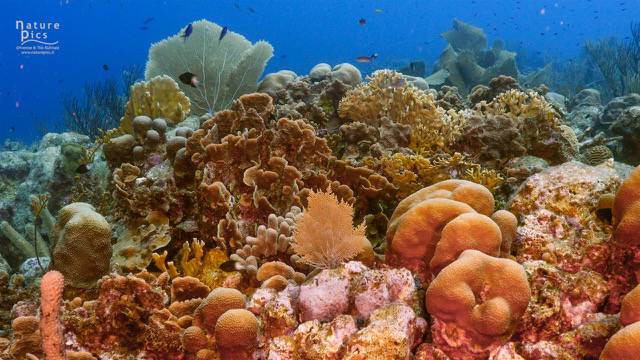In recent years, there has been an increase in the detection of UV filters from sunscreens in coastal waters. A new study by Wageningen University and Research found that these UV filters seem to weaken corals, allowing warmed seawater as a result of global warming to further damage the reefs.
Scientists from Wageningen University & Research conducted an experiment where water temperature was raised from 26 to 33 degrees Celsius in tanks containing two types of stony corals to mimic the effects of climate change. In addition, the artificial UV filter oxybenzone from sunscreen was added to the water to recreate conditions based on levels reported from coastal waters around Bonaire.
Prolonged stress
Corals were examined for more than six weeks. “That is really unique,” says Diana Slijkerman of Wageningen Marine Research. “These stress experiments are usually short-term, but this chronic exposure to a low concentration of a harmful substance has allowed us to simulate the field situation as closely as possible.”
It turns out that temperature elevation can greatly affect the health of corals. In addition, these results suggest that sunscreen intensifies this damage. Slijkerman stated “The warm seawater is the largest threat, but it seems that oxybenzone adds insult to injury by weakening corals in the face of global warming “.
Coral reefs under pressure
Coral reefs are under pressure worldwide due to an increase in seawater temperatures, deterioration of water quality, increased diseases and acidification. Recently scientists have discovered a new pressure, the high amounts of artificial UV filters present in coastal waters due to the use of sunscreens by people.
This study emphasizes the importance of implementing local measures. “The biggest problem is climate change and you have little influence on that locally,” explains Slijkerman. “But you do have local control over water quality.” You can choose “reef friendly” sunscreen without oxybenzone, apply 30 minutes before entering the water or to wear protective clothing. Besides, water quality not only concerns pollution from sunscreens, but also, for example, discharge of waste water and erosion.




















